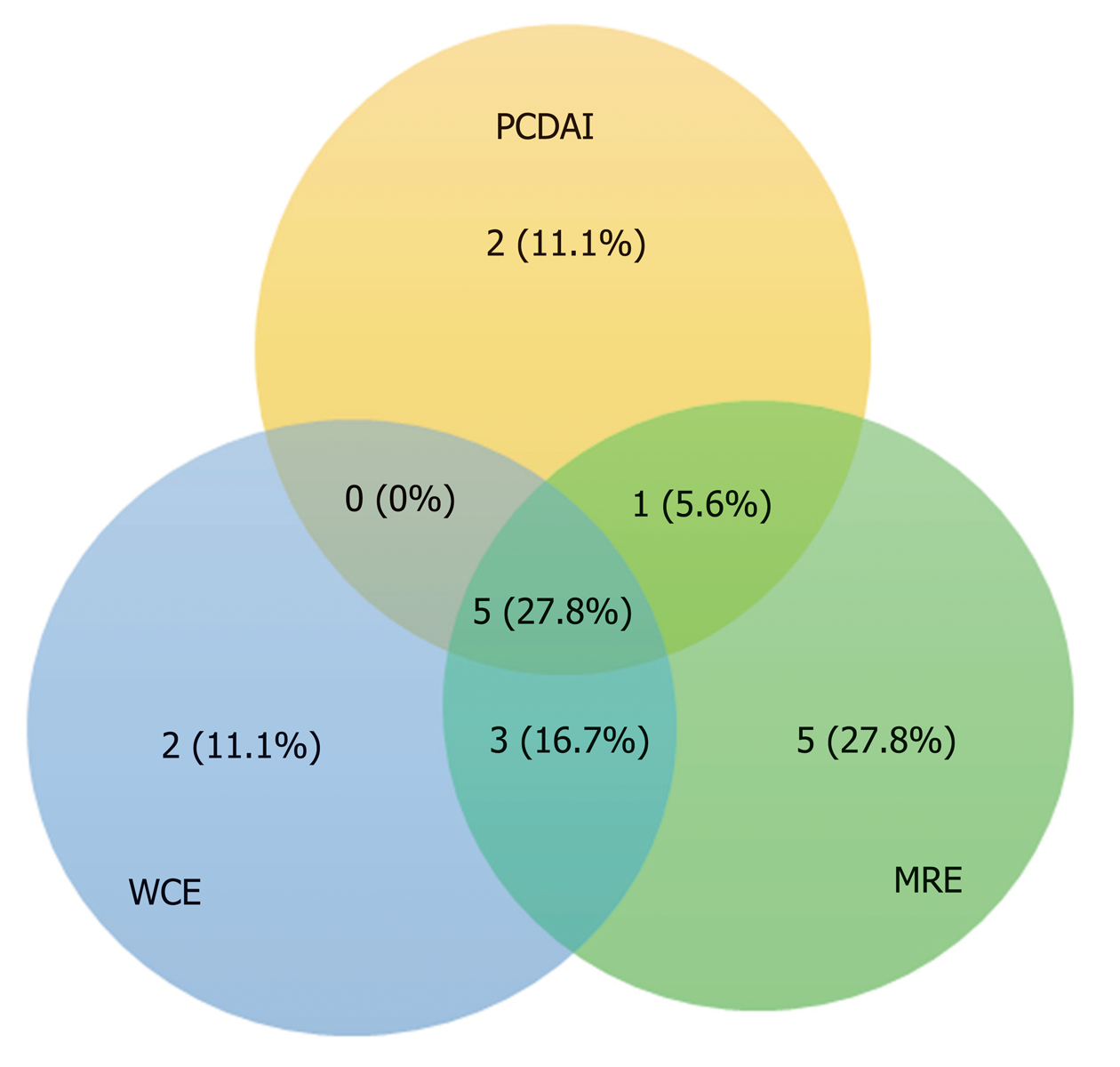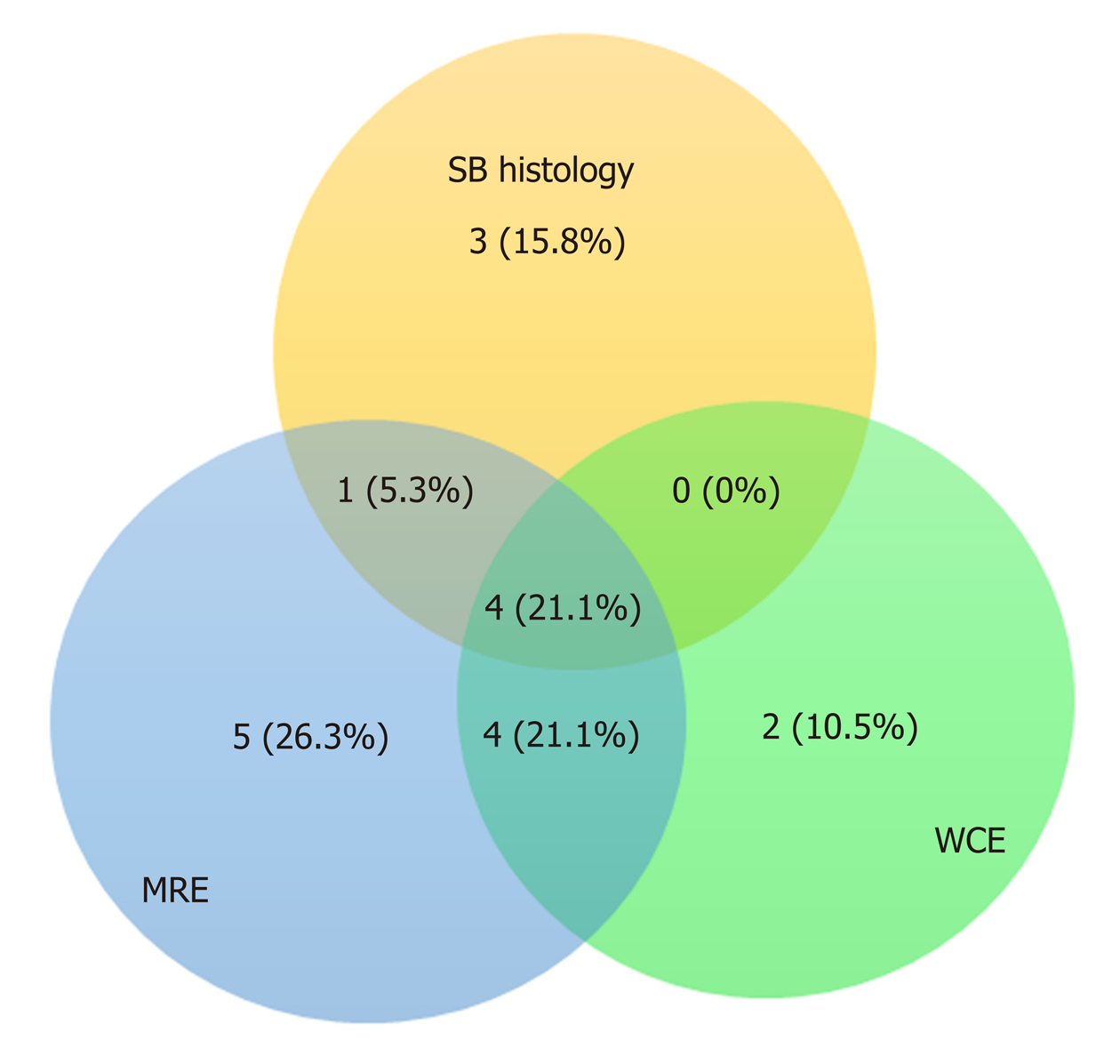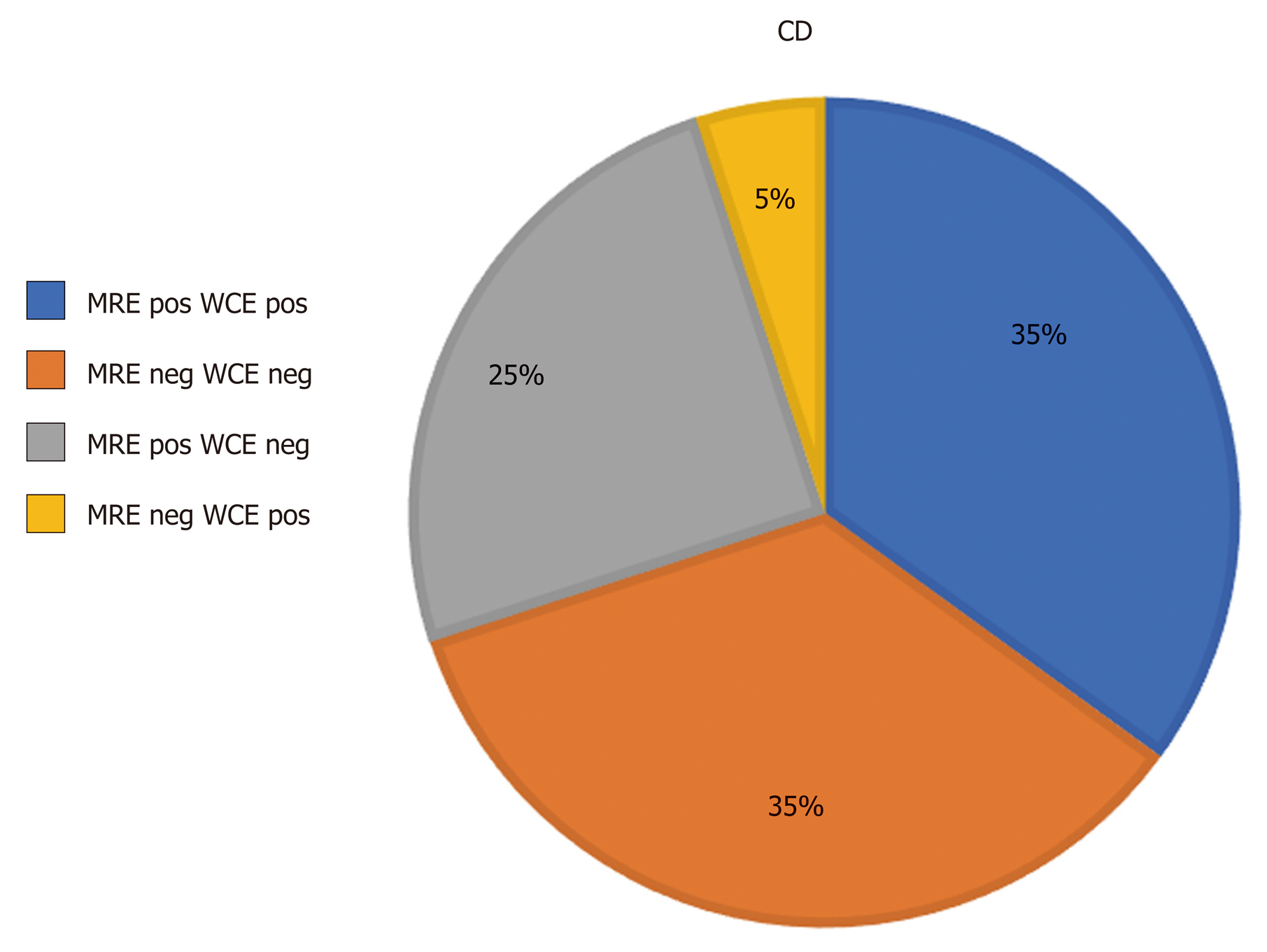Copyright
©The Author(s) 2019.
World J Gastroenterol. Jul 28, 2019; 25(28): 3808-3822
Published online Jul 28, 2019. doi: 10.3748/wjg.v25.i28.3808
Published online Jul 28, 2019. doi: 10.3748/wjg.v25.i28.3808
Figure 1 Concordance rate of positive small bowel involvement in the pediatric Crohn’s disease activity index, positive magnetic resonance imaging, and wireless capsule endoscopy modalities in all patients n = 26.
PCDAI: Pediatric Crohn’s disease Activity Index; MRE: Magnetic resonance enterography; WCE: Wireless capsule endoscopy.
Figure 2 Concordance rate of positive small bowel involvement in wireless capsule endoscopy, magnetic resonance enterography and small bowel histology modalities in only patients with available histology n = 14.
SB: Small bowel; WCE: Wireless capsule endoscopy; MRE: Magnetic resonance enterography.
Figure 3 Concordance rate of magnetic resonance imaging and wireless capsule endoscopy in all patients.
WCE: Wireless capsule endoscopy; MRE: Magnetic resonance enterography; Pos: Positive; Neg: Negative.
Figure 4 Concordance rate of magnetic resonance imaging and wireless capsule endoscopy in Crohn’s disease patients.
WCE: Wireless capsule endoscopy; MRE: Magnetic resonance enterography; Pos: Positive; Neg: Negative.
- Citation: Hijaz NM, Attard TM, Colombo JM, Mardis NJ, Friesen CA. Comparison of the use of wireless capsule endoscopy with magnetic resonance enterography in children with inflammatory bowel disease. World J Gastroenterol 2019; 25(28): 3808-3822
- URL: https://www.wjgnet.com/1007-9327/full/v25/i28/3808.htm
- DOI: https://dx.doi.org/10.3748/wjg.v25.i28.3808












